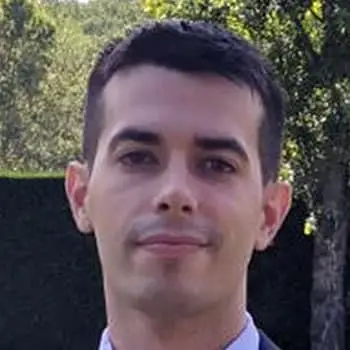
Alejandro Cifuentes López
Technical Engineer, Addlink Software Científico
PhD in Chemical Process Engineering from the Polytechnic University of Catalonia. He holds a Master’s degree in Renewable Energies and Energy Sustainability from the University of Barcelona. Also, he holds a degree in Energy Engineering from Polytechnic University of Catalonia. Currently, he works at Addlink Software Científico S.L. as a technical engineer.
Teaching
Alejandro Cifuentes López has been an associate professor at the Polytechnic University of Catalonia, responsible for teaching the course on Computational Simulation in Fluid Mechanics and Heat Transfer.
At ADDLINK Software Científico S.L., he has conducted numerous seminars and courses on various aspects of the COMSOL Multiphysics simulation platform. The training content included a general introduction to the main platform, the use of CFD modules, heat transfer and chemical engineering, as well as the application builder.
Research
His research activity has been focused on alcohol reforming technologies for the production of pure hydrogen. This research was conducted at the Institute of Energy Techniques (INTE). Specifically, he worked on the development of improved membrane reforming systems and their controllability, as well as the characterization of new heterogeneous catalysts.
Previously, at the Institute of Robotics and Industrial Informatics of Barcelona (IRI), he participated in the development of a dynamic model of a Solid Oxide Electrolyser Cell (SOEC). The objective of his work was to design a PID controller for the operation of an electrolyzer using this technology.
Numerical Simulation and COMSOL Multiphysics
He specializes in the simulation of reactive transport of chemical species with surface reactions or in porous media, such as in the case of a fluidized bed reactor. These are complex models as there is a strong coupling between different physics, making convergence challenging. Additionally, he has conducted numerous optimization studies and parameter tuning in various areas.
The computational models developed using COMSOL Multiphysics have been instrumental in gaining a better understanding of the chain reactions that occur in alcohol reforming, as well as their dependence on temperature and residence time.